Call for applications for the Wisconsin ADRC REC Scholar Program
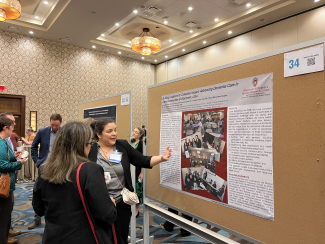
The Wisconsin Alzheimer's Disease Research Center (ADRC) Research Education Component (REC) is looking for exceptional early-career investigators who are interested in working on Alzheimer’s disease and related dementias (ADRD) research. This program is intended to support ADRD training for individual researchers and to facilitate development of skills in basic, clinical and translational research.
The goal is to deliver a rigorous mentored training program to ensure the research proficiency in broad-based Alzheimer’s disease and related dementias research and specific training in the ADRC’s theme of multi-modal biomarkers and diverse life-course exposome.
Approximately 2-3 junior faculty or scientists and 2-3 postdoctoral fellows will be competitively selected to participate in the 2-year program, which is expected to run from June 2026 through May 2028.
The application deadline for the 2026-2028 cycle is midnight on February 20, 2026.
Program and application details
The program will include:
- Training in core research competencies and the ADRC core content areas necessary for success as an independent scientist (see Figure 1 below)
- Training in basic, clinical and translational research concepts necessary for furthering innovative research on Alzheimer's disease
- Mentorship to advance research independence
- Meetings to introduce ADRC Core leaders and resources
- $50,000 over two years to support a research project for junior faculty scholars
- $30,000 over two years to support a research project for post-doctoral scholars

Eligibility Requirements
- Junior faculty, post-doctoral fellow or scientist
- Have an appointment at UW–Madison
- For Junior faculty, must have a minimum of 20% protected research time to conduct project
- Have research aims that can be connected to or benefit Alzheimer's disease and related dementias research and align with the National Alzheimer's Project Act
- Applicants who have a NIH career award or similar are preferred, but this is not required
Additional Considerations
- This program is not primarily intended to provide salary support for the applicant, although small, justified requests are acceptable.
- In general, we expect that applicants will be able to demonstrate that they have protected time to conduct their project and engage in training.
- Applicants who have previously been awarded an NIH R01 as PI or MPI, or a similar award, are NOT eligible. Applicants may have an NIH R01 grant (or similar) application under review at the time of their application
- REC support is intended for U.S. citizens and permanent residents
Required Training Activities
- Mentoring and Career Coaching
Scholars will meet regularly with two to three named mentors with complementary skills.
- Create an IDP
With their mentors, scholars will create an individualized development plan (IDP).
- Tailored Instruction in Scientific Concepts in ADRD Research
To ensure comprehensive training, REC leaders in collaboration with the ADRC Cores, have identified eight ADRC content/concentration areas for development. Wisconsin ADRC REC Scholars are expected to identify 2-3 content areas, and propose in depth training in selected content areas, under the guidance of a mentorship team.
- Meet ADRC Core leaders
Via bi-monthly meetings, scholars will hear from the Wisconsin ADRC Core Leaders in a small group setting on the goals, operation, and outcomes of their ADRC Core. We aim to ensure scholars integrate with the ADRC, and understand ADRC operations, preparing them for their own future leadership roles.
- Mentored Research Project
Faculty-level Scholars receive $25,000 per year ($50,000 over two years) to support a mentored research project, training, travel to research conferences and annual travel to an ADRC meeting.
- Attendance at the National ADRC Meeting (annual)
Scholars will attend at least one ADRC meeting in each of the two years as a Scholar. In-person attendance is recommended.
- Data Presentations
Scholars will present at one ADRC seminar series and/or the ADRC's Alzheimer's Disease & Related Dementias Research Day. REC scholars will present a research update to other Scholars and faculty mentors to obtain feedback on their work and to foster cross-disciplinary learning.
Application requirements can be found below.
- Junior Faculty Application Requirements
- Training Plan / Career Development Plan (500 word limit)
- Letter of support from chair confirming minimum of 20% protected research time to conduct project
- NIH Biosketch (5 page limit)
- Abstract (500 word limit)
- 2-3 specific aims for the project that the $50,000 will support (1 page limit)
- Research plan (3 page limit)
- Budget (NIH format budget page and justification)
- Post-Doctoral Fellow Application Requirements
- Training Plan / Career Development Plan (500 word limit)
- Letter of support from primary advisory stating they approve of this submission and the proposed project, which would be carried out in their lab
- NIH Biosketch (5 page limit)
- Abstract (500 word limit)
- 2-3 specific aims for the project that the $30,000 will support (1 page limit)
- Research plan (3 page limit)
- Budget (NIH format budget page and justification)
See the program guide for additional resources and details.
If you have questions, please email Sheryl Spensley.
2024-2026 REC Scholars
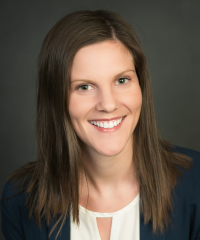
Beth Fields, PhD, OTR/L, BCG
Dr. Fields is a board-certified occupational therapist, assistant professor in the UW Department of Kinesiology and faculty affiliate with the Center for Aging Research and Education and the Wisconsin Alzheimer's Research Center. Her project is "The Dementia Care Partner Hospital Assessment Tool Project."
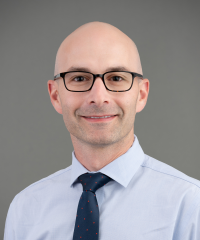
David Harris, MD
Dr. Harris is an assistant professor in the UW Department of Surgery, as well as the director of MIS Research in the Division of Minimally Invasive Surgery and the associate director of the UW Madison Mouse Phenotyping and Surgery Core. He is also an affiliate member of the Division of Endocrinology, Diabetes and Metabolism. His project is "Defining the impact of Sleeve Gastrectomy on Alzheimer's Disease through single nucleus RNAseq."
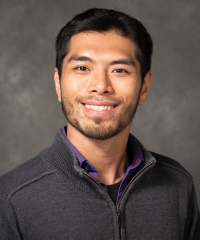
Yang Yeh, PhD
Dr. Yeh is a research associate in the Division of Endocrinology, Diabetes and Metabolism and a post doc in the Lamming Lab. His project is "The Effects of Dietary Protein Content on Alzheimer's Disease and the Geroprotector Rapamycin."
2021-2023 REC Scholars
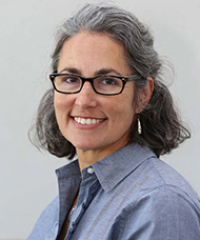
Anita Bhattacharyya, PhD
Dr. Bhattacharyya is junior faculty and a basic science researcher in the Department of Cell and Regenerative Biology. Her research project is “Investigating the role of APP in human Down syndrome neurons."
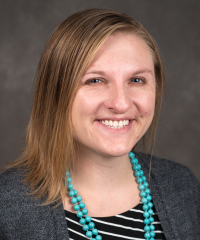
Lindsay Clark, PhD
Dr. Clark is junior faculty and a clinical researcher in the Department of Medicine. Her research project is “Validating teleneuropsychology for earlier dementia diagnosis."
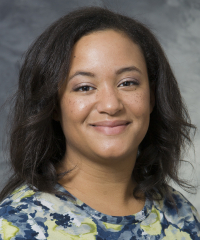
Andrea Gilmore-Bykovskyi, PhD, RN
Dr. Gilmore-Bykovskyi is an assistant professor in the School of Nursing. Her career goal is to develop a clinical research program focused on improving Alzheimer’s disease diagnosis as well as access to care and treatments, especially for high-risk and disadvantaged populations.
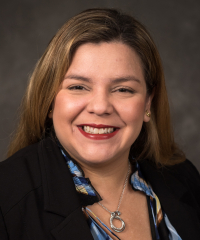
Maria Mora Pinzon, MD, MS
Dr. Pinzon is a physician-scientist and fellow with the Wisconsin Alzheimer’s Institute. Her project is “Increasing Latinx participation in ADRD through a Community-Based Approach."




